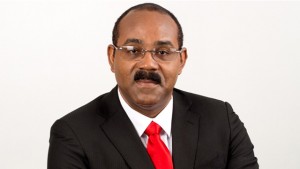
Antigua & Barbuda Prime Minister Gaston Browne
The Prime Minister of Antigua and Barbuda, Gaston Browne’s declaration that Caribbean governments should have ownership stakes in hotels has been described as a dangerous way for the region to go if it hopes to attract investors.
Antigua News Room reported that Browne said: “ The hoteliers, they are brutal in their requirements, they ask for up to 25 years concessions on everything, they don’t want to pay no taxes when their tax (exemptions) run out they come back and they insist you must renew it, and when you decide you don’t want to do it because you are trying to protect government’s revenue, they hold you hostage to fortune.”
Speaking from Weir Capital in London, Robert Mackenzie responded, “ State-owned hotels in the Caribbean has never been successful at any time. The business of government is not running businesses.
Antigua is heavily indebted and should use its resources prudently in areas like education, healthcare and maintaining law and order – not using well needed capital to buy hotels.
“ If the government gets into the hotel business, investors in all sectors will run off and with no FDI, Caribbean countries would be a financial disaster. It just doesn’t make sense . The Prime Minister of Antigua needs to rethink his position on this.
Earlier this year the Government of India divested hotels and properties of the India Tourism Development Corporation( ITDC) at three locations- Bhopal, Guwahati and Bharatpur.
Prime Minister Narendra Modi said “ The decision on divestment has been made keeping in view that running and managing hotels on professional lines is not the work of the government or its entities..”
India is one of the fastest developing economies in the world and is actively encouraging investment with the government playing the role of facilitator.
Browne went on to add that his government will now be pursing a policy of ‘entrepreneurial socialism’.
He further explained his thinking adding, “ And this is not a socialistic policy. It is very much capitalistic in which we are saying here, look, we will risk our capital. We will borrow the money, we will invest in these hotels and we will lease them to the private sector to operate.”
Robert Mackenzie opined, “That is one hell of an oxymoron, entrepreneurial socialism. Those two words cannot exist in the same sentence. Furthermore Cuba has tried it with their hotels particularly in Vedado and it has not worked. So too has Michael Manley in the 70s in Jamaica and that was an abject failure. You should read a report called “ Tourism and the Less Developed World” published by CAB International. It is very insightful.”
That report notes that in Jamaica the government purchase of hotels from expatriate owners in the early 70s was prompted by socialist principles and the desire to protect hotel employment during a recession.
By the mid 80s there was a general move toward privatization and the free market. Hotels which were government-owned have now almost all been sold, the majority to Jamaicans and they have thrived.
In the book Economic Logic by Mark Skousen, the author writes: “ It’s hard enough for government to run essential services – police, courts and utilities – let alone running hotels, steel mills and airplanes. Government should not be in the business of running businesses. It is beyond their expertise.”
Last year Antigua had a public debt of US$1.3 billion with a debt to GDP ratio of 89%. It has a gross GDP of $1.4 billion with a total national debt per capita of US$14, 247. It would be unwise at this time to significantly add to its debt stock and widen its fiscal deficit.
Robin Wigglesworth of the Financial Times writes: “ The Caribbean region as a whole had an average budget deficit of 3% between 1990-2015. Since 2010 Antigua, Belize, St Kitts, Grenada and Jamaica have had to default and restructure their debt.”
The Caribbean has slowly but surely become one of the most indebted in the world, with liabilities often far beyond what is safe for such small, open and undiversified economies.”
